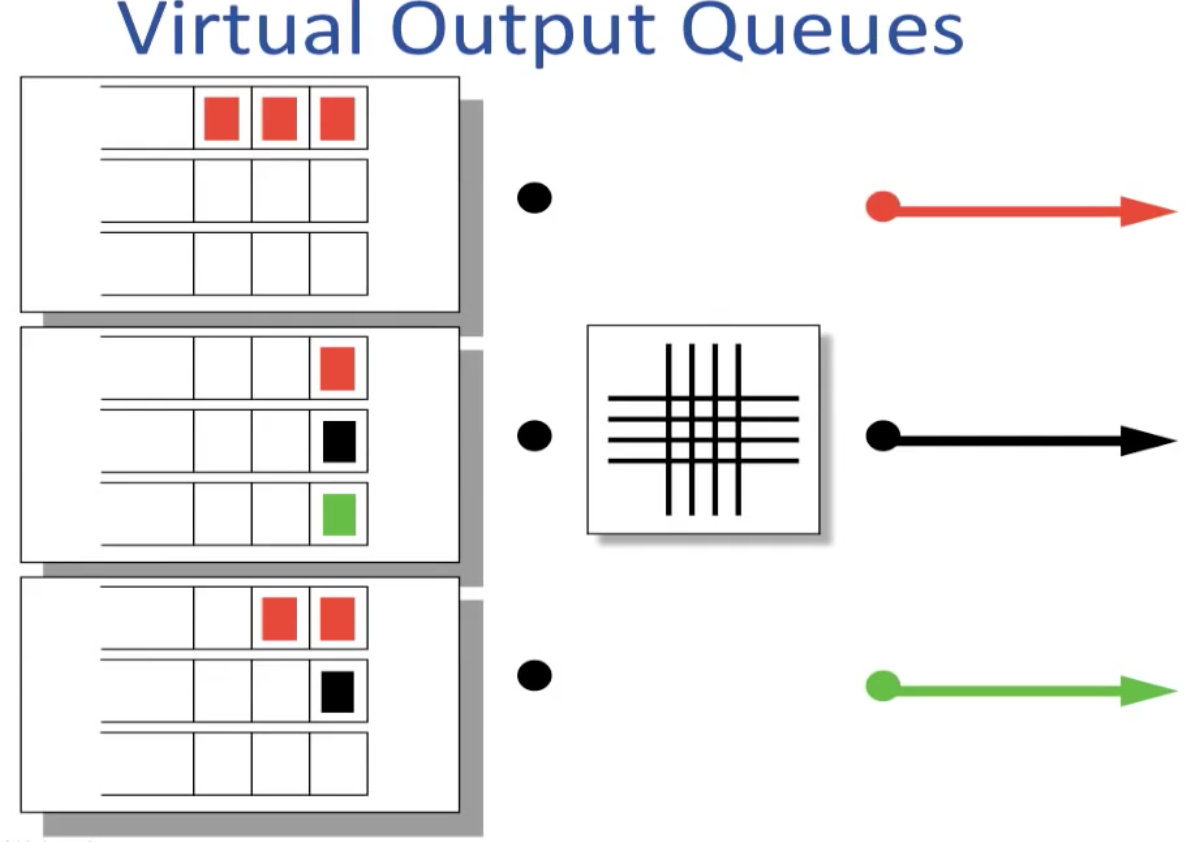Speed of Network
Predecessor of Package Switching
Circuit Switching
- used in telephone system
- Each phone call has unique connection(physcial wire) that doesn’t shared with others
Problems
- Inefficient, computer communication tend to be bursty
- Diverse rate, different application diff a lot in speed requirement, for example ssh vs video
- State management
Package Switching

- The router can only route exactly one package at any given time, so other packages must be buffered
- No state need to be managed, all communication share the whole link
Definitions
Propagation speed is how fast can the link transmit a bit
Data rate is how fast can we put bits on the link(how many bits can we put on the link per second)
Propagation Delay
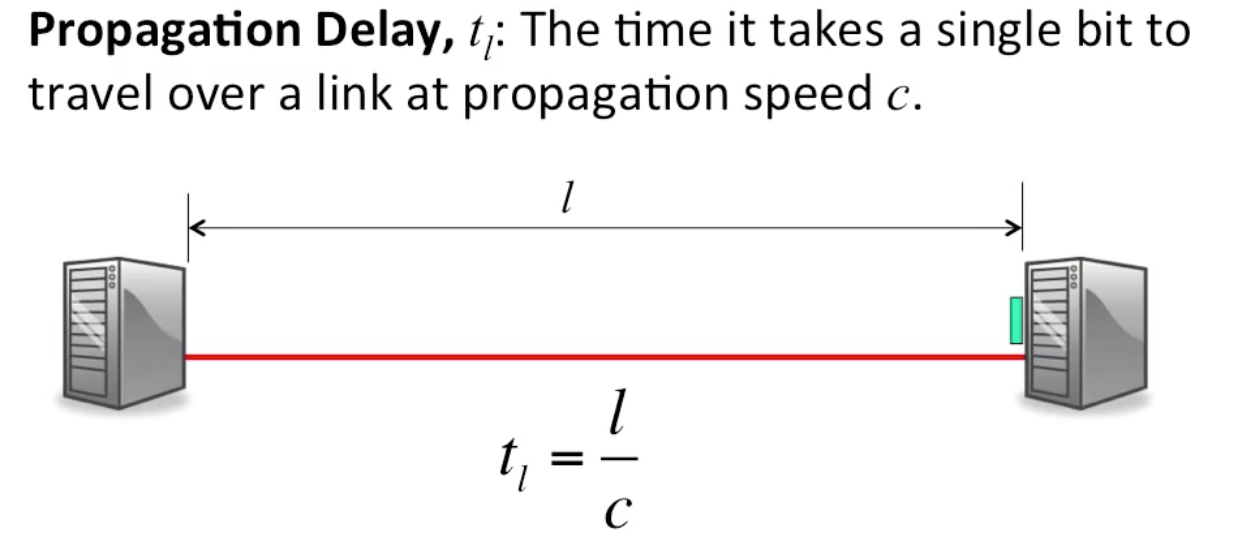
The propagation speed is about 80% of the speed of light, so we use $c$ to represent the speed
The propagation speed is defined by the material of the link rather then the data rate of the link
Packetization Delay
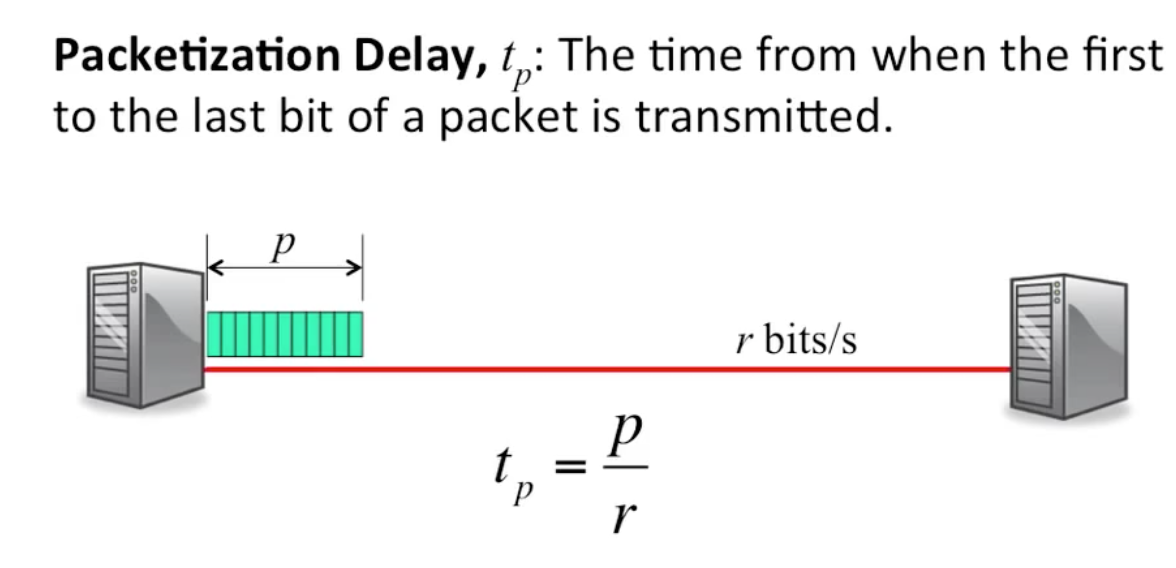
- The data rate of the link is $r$, the total bits need to be transmitted is $p$
- Do not affected by propagation speed or the distance
End to end Delay
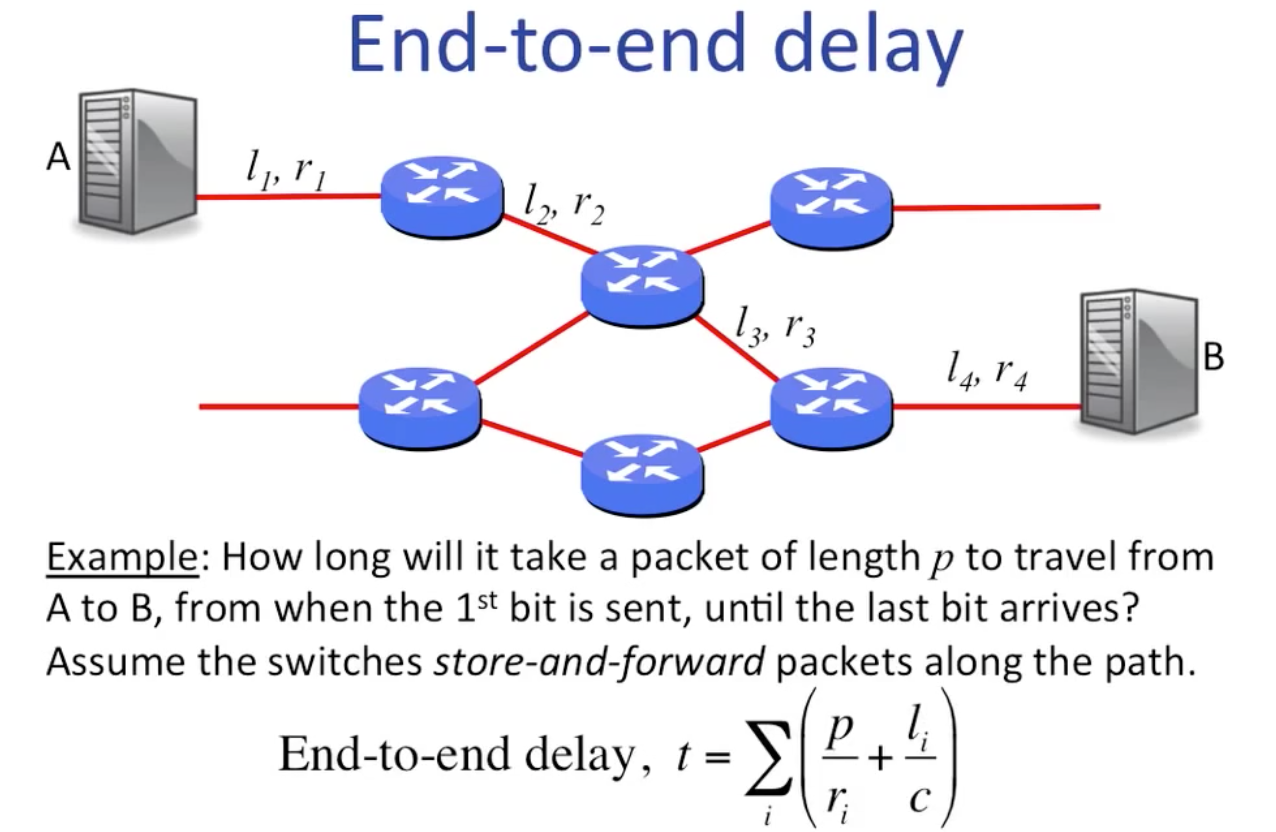
sum of propagation delay and packetization delay
Why it is addition here rather than multiplication?
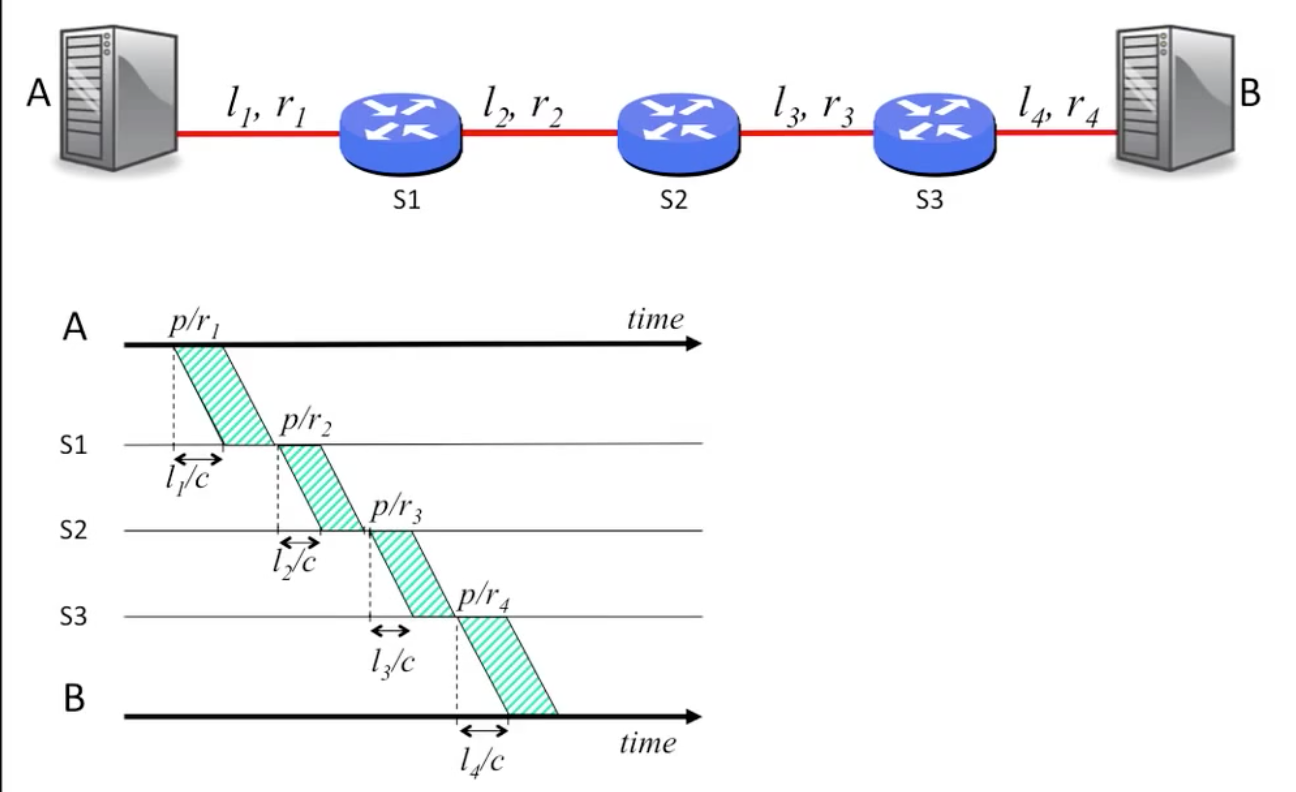
- Sending bits is the link’s job, putting bits on link is the host’s job, they can be done simultaneously.
- Bits can be sent simultaneously, the link do not need to wait for the previous bit to arrive before sending the next one.
Queue Delay
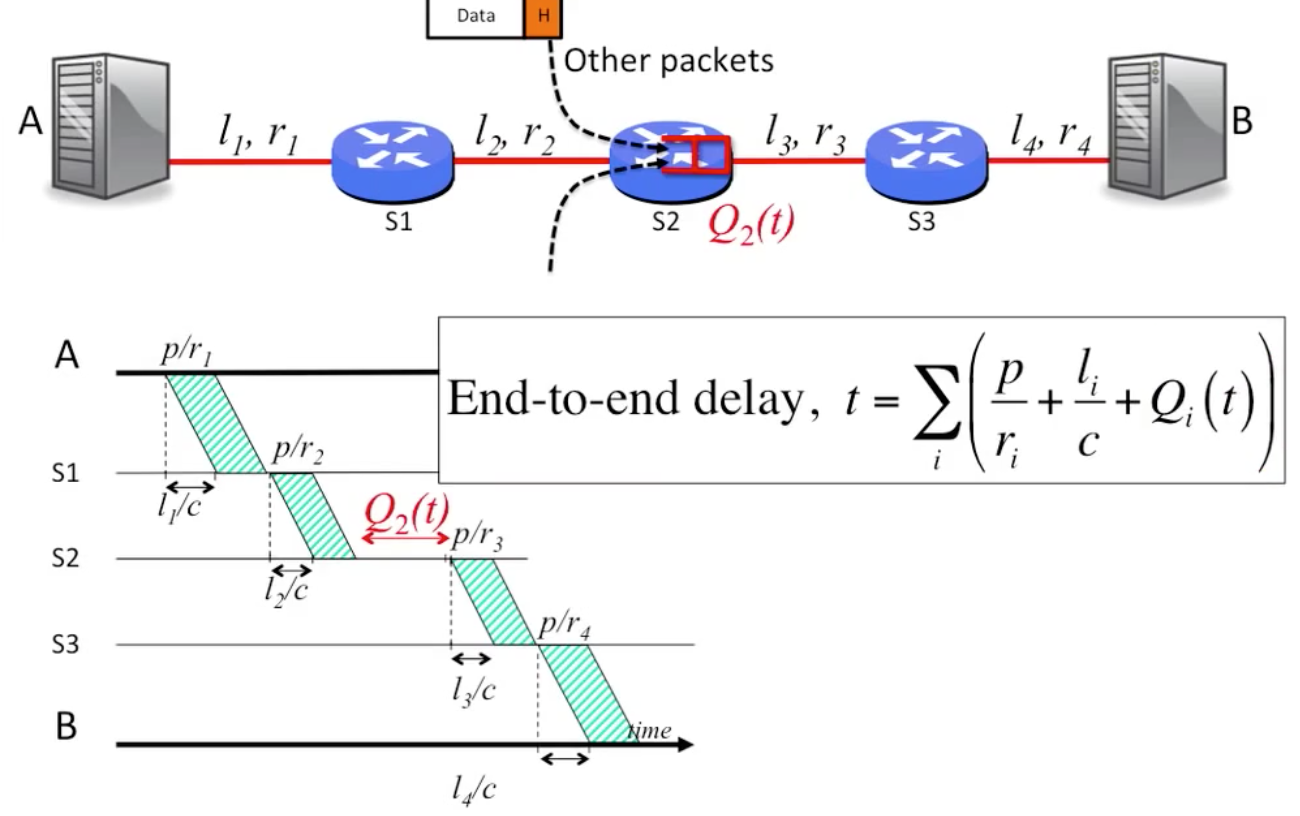
Your package will be buffered if other package’s arrival is ahead of yours, you have to wait
Why $Q(t)$ is a function of time ? Because we don’t know at which time the network will become crowded and make you package wait.
Due to the queueing(UK style of spelling here) delay, the end-to-end delay is unpredictable
1 | $ ping www.stanford.edu |
The time varies between each package, it is the round-trip time(sum of to and back)
- Video applications can set a playback buffer to absorb the queueing delay
Queue model
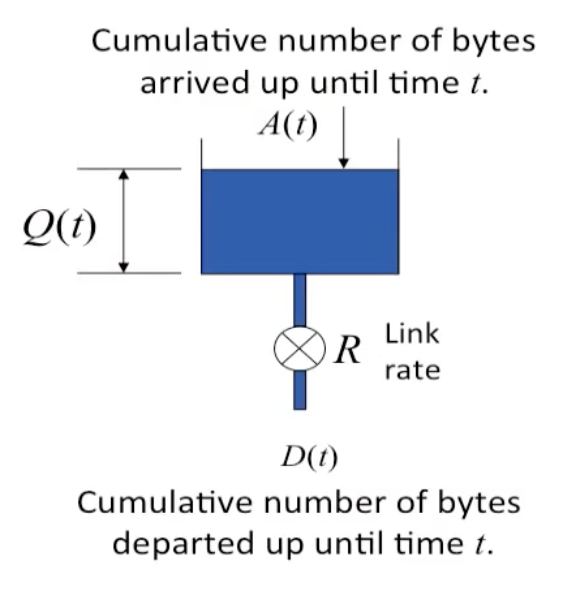
$$
Q(t) = A(t) - D(t)
$$
$$
delay(t) = D^{-1}(bytes) - A^{-1}(bytes)
$$
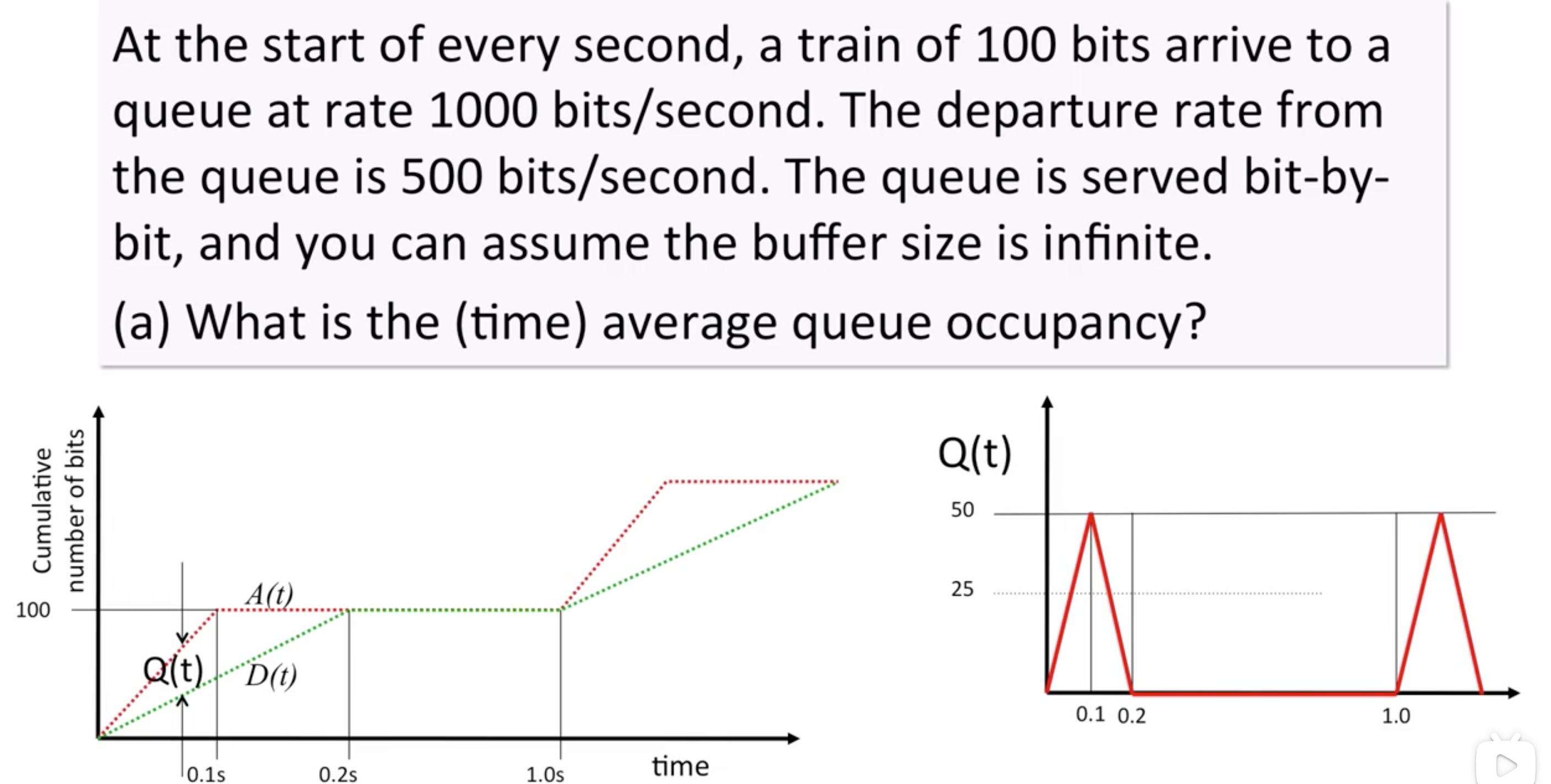
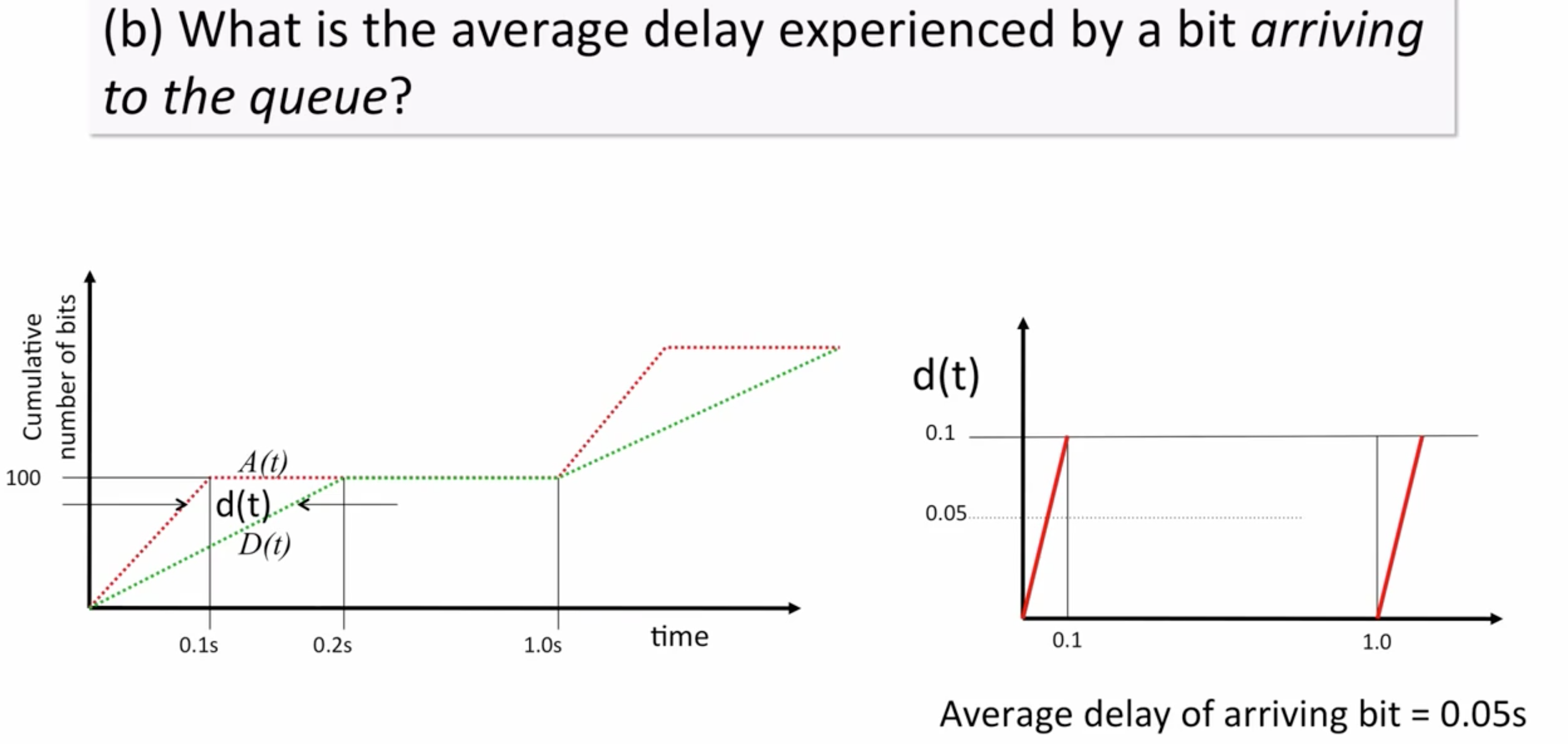
Why we use package switching

Statistical Multiplexing
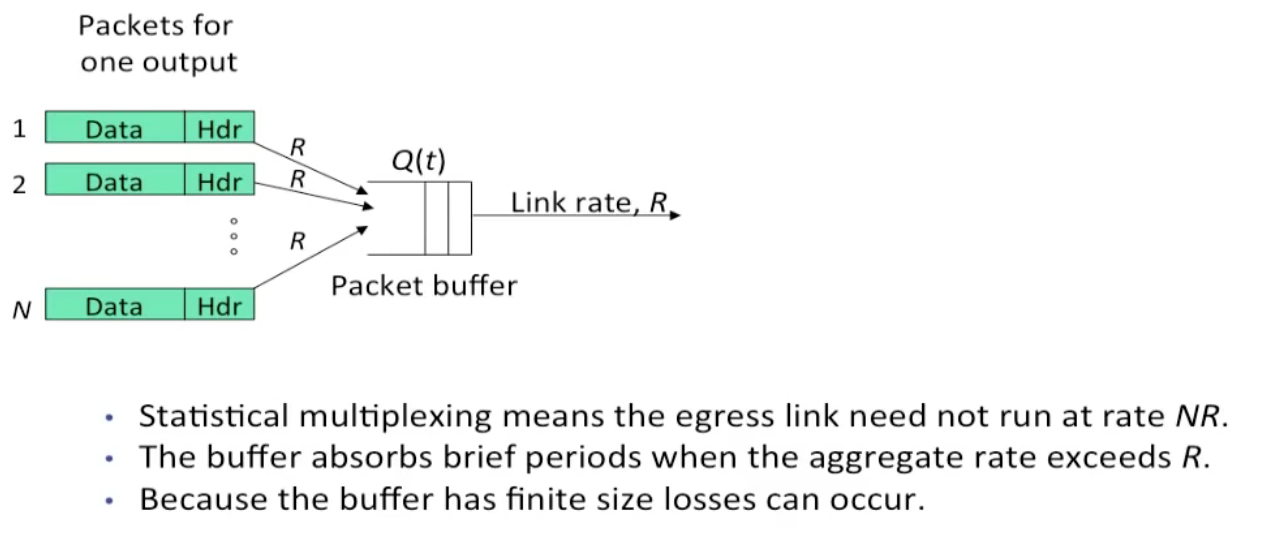
Queueing Theory
Burstiness increase delay
Little’ result
Poisson’ process
….
Switching and forwarding
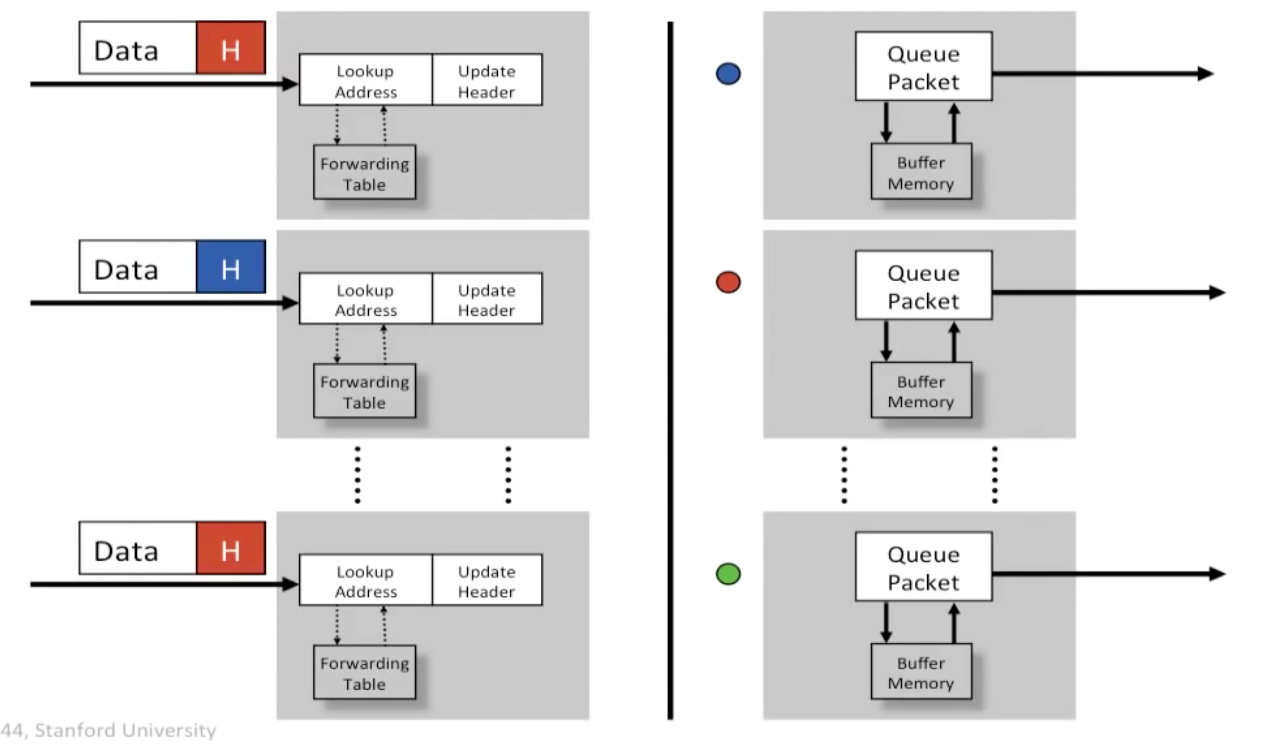
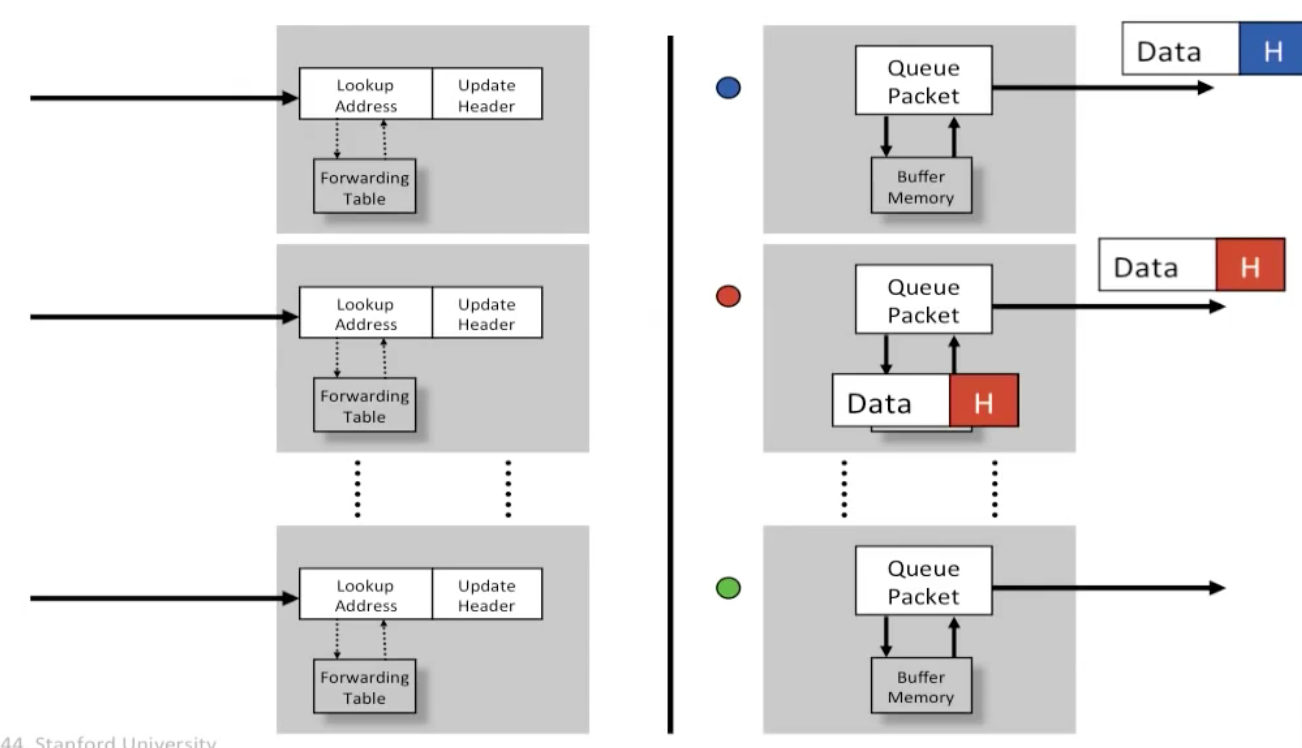
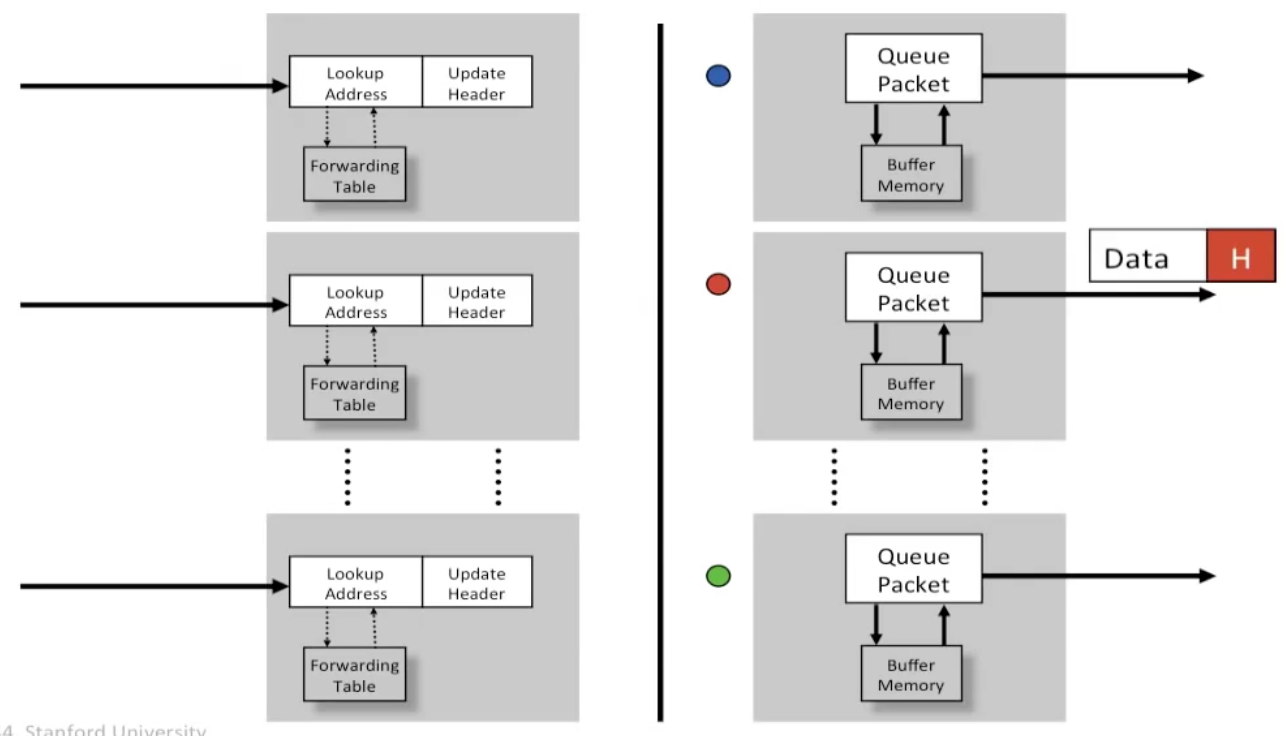
Ethernet switcher
The forwarding table store hash value of destination address and the matching process is fully matching, that is to say, the addresses must be exactly the same.
1 | class EthernetSwitcher(): |
Internet router
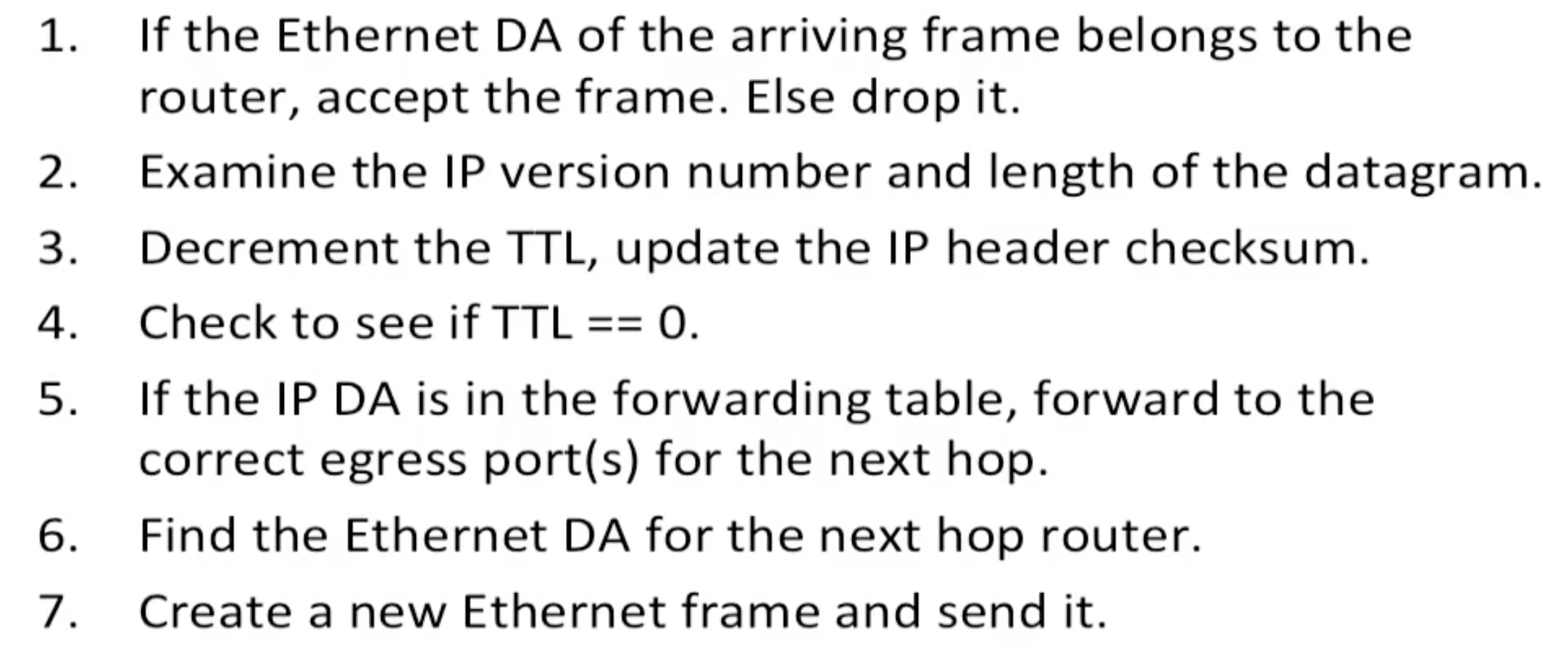
Virtual Output Queue
Problem with single queue
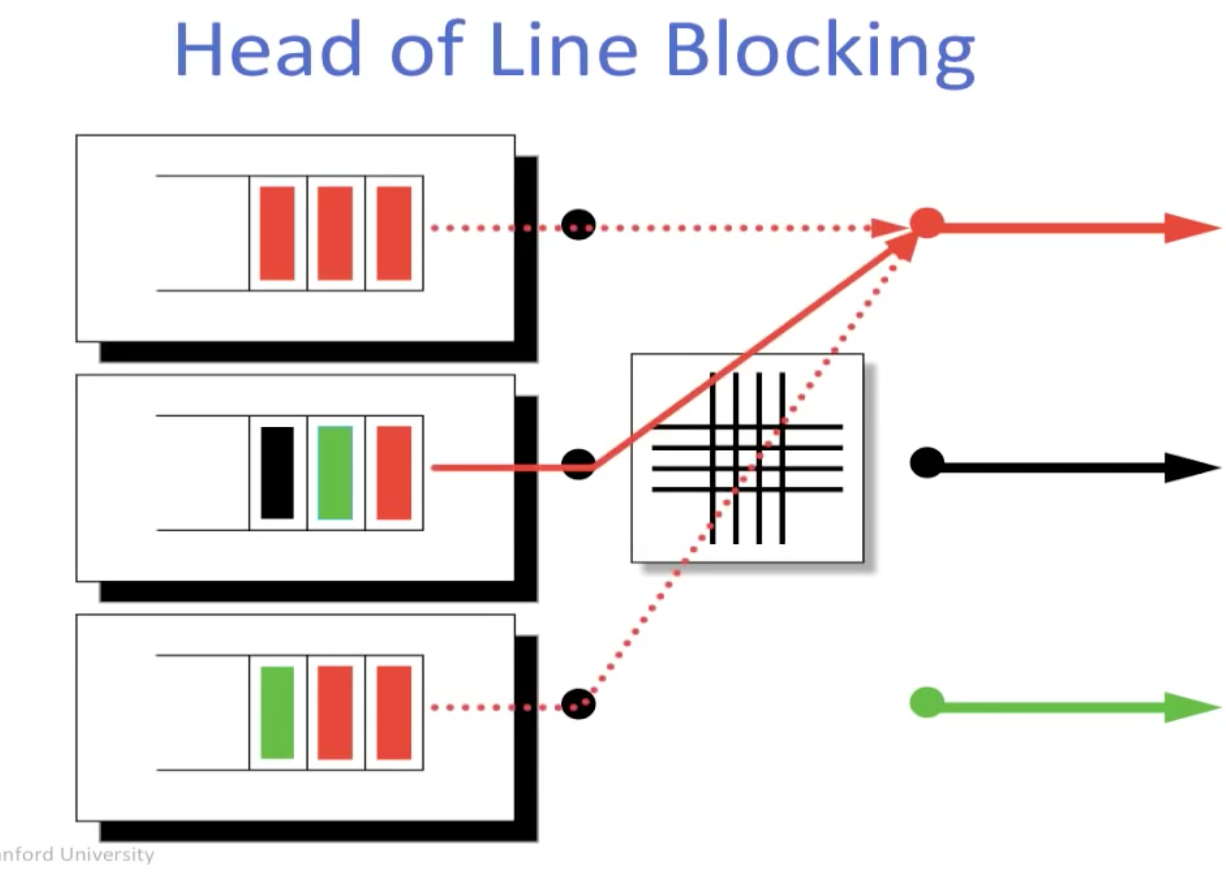
Pre-categoried strategy
